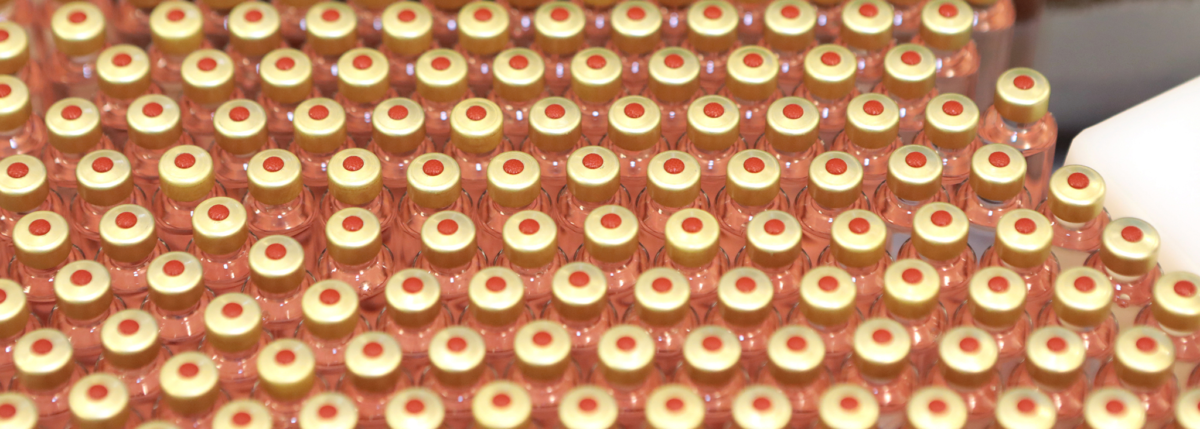Fourth Major Insulin Manufacturer Enters US Market with Semglee Launch
Editor’s Note: People who take insulin require consistently affordable and predictable sources of insulin at all times. If you or a loved one are struggling to afford or access insulin, you can build custom plans based on your personal circumstances through our tool, GetInsulin.org.
On Monday, August 31, Mylan and Biocon Ltd announced that Semglee (insulin glargine) is now available by prescription in the United States in vial and pre-filled pen presentations, with an initial list price of $98.65/ 10mL vial and $147.98/ box of five (5) 3mL pens. Semglee has an identical amino acid sequence to Sanofi’s Lantus and is approved for the same indications.
The biologic insulin analogue was approved by the FDA in June 2020 to control high blood sugar in adults with type 2 diabetes and adult and pediatric patients with type 1 diabetes. With this launch, Mylan/Biocon becomes the fourth major insulin manufacturer to enter the U.S. market.
As explained by the FDA, biologics are “complex mixtures that are not easily identified or characterized,” in contrast to “most drugs that are chemically synthesized and their structure is known.” The drugs are difficult to reproduce because of their highly complex nature.
The next step of approval from the FDA is to go from a biologic classification to biosilimar. To be deemed a biosimilar, a drug must meet additional requirements to be deemed interchangeable, meaning a product could be swapped (at the pharmacy counter for example) without consulting the prescriber or notifying the patient. Semglee currently does not have an interchangeable distinction, which is why it currently requires a separate prescription from Lantus.
According to the press releases, Mylan has “submitted to FDA all necessary documentation to request approval of Semglee as a biosimilar to Lantus under the 351(k) pathway and remains confident in seeking an interchangeability designation.”
In comparison, the list price in 2019 for Lantus was $283.56 for one 10mL vial and $425.31 for a box of five 3mL pens. A third insulin glargine product is Basaglar, a Lilly product with a list price of $326.36 for a box of five 3mL pens.
The list price of insulin products have skyrocketed in the United States over the last several years, with those in high-deductible insurance plans, Medicare and without insurance paying high out-of-pocket costs. It is important to note that Semglee is not currently covered through insurers’ formularies in the US at launch. Mylan has stated they will offer affordability programs for those who have been prescribed their product.
It remains to be seen whether and how widely insurance companies and PBMs will cover Semglee on insurance formularies. Following Lilly’s launch of a half-priced generic version of Humalog in 2019, the largest PBM in the country, Express Scripts, neglected to cover the cheaper option. Higher list prices are correlated with larger rebates paid to pharmacy benefits managers (PBMs) and insurers, part of the complex nature of insulin pricing in the U.S.. If Semglee is not covered by payers, those with commercial insurance will likely find that insulins covered by their plans remain more cost-effective, while Semglee may be a cheaper option for those with high deductibles or who are uninsured, paying list price at the pharmacy counter.
Mylan CEO Heather Bresch said: “We are proud to be the first company, following the reference product, to receive FDA approval on and launch both the vial and pen presentations of an insulin glargine treatment with an identical amino acid sequence to Sanofi’s Lantus. Even more importantly, we are proud to make Semglee available to the more than 30 million Americans living with diabetes in the U.S. providing more treatment options and increasing access. While providing our product at the most competitive list price on the market is an important step toward ensuring that those who need insulin are able to access and afford it, we also know that there is still work to be done to ensure this access and affordability reaches patients at the pharmacy counter. We remain committed to work across the healthcare system to improve outcomes for all.”
Semglee has been available in Europe since 2018, but the approval process in the United States took significantly longer. The New Drug Application (NDA) for Semglee was submitted to the FDA in September 2017. In October of that year, Sanofi sued Mylan to defend 18 patents related to Lantus (insulin glargine) and Lantus SoloStar pens. In March of 2020 the last of these patent claims were ruled invalid by the U.S. District Court of New Jersey.
The difference in list price between Semglee and Lantus, a 65 percent reduction according to release, is a significantly larger gap than Basaglar and Lantus, or Admelog and Humalog, which were each priced 15-30 percent lower at launch.
A fourth major pharmaceutical company entering the insulin landscape in the U.S. offering an insulin analogue product at a significantly lower list price could meaningfully drive competition in the space. Eli Lilly, NovoNordisk and Sanofi —sometimes referred to as “The Big Three”—account for over 90 percent of the global insulin market and produce nearly 100 percent of the insulin supply in the United States.
Beyond Type 1 Chief Advocacy Officer Christel Aprigliano said “No individual should ration or die due to lack of access to insulin. For millions of us in the United States who have made life-altering choices based on the list price of the drug that keeps us alive, any options that offer out-of-pocket expense relief is welcome. With the entrance of Mylan as the fourth major pharmaceutical company offering injectable insulin analogues and an increasing push for rebate reform through legislative policy, we are hopeful that this is the beginning of a path to significantly lower out-of-pocket insulin costs for everyone in the U.S. diabetes community.”
For more information on the insulin pricing crisis in the U.S., click here.





